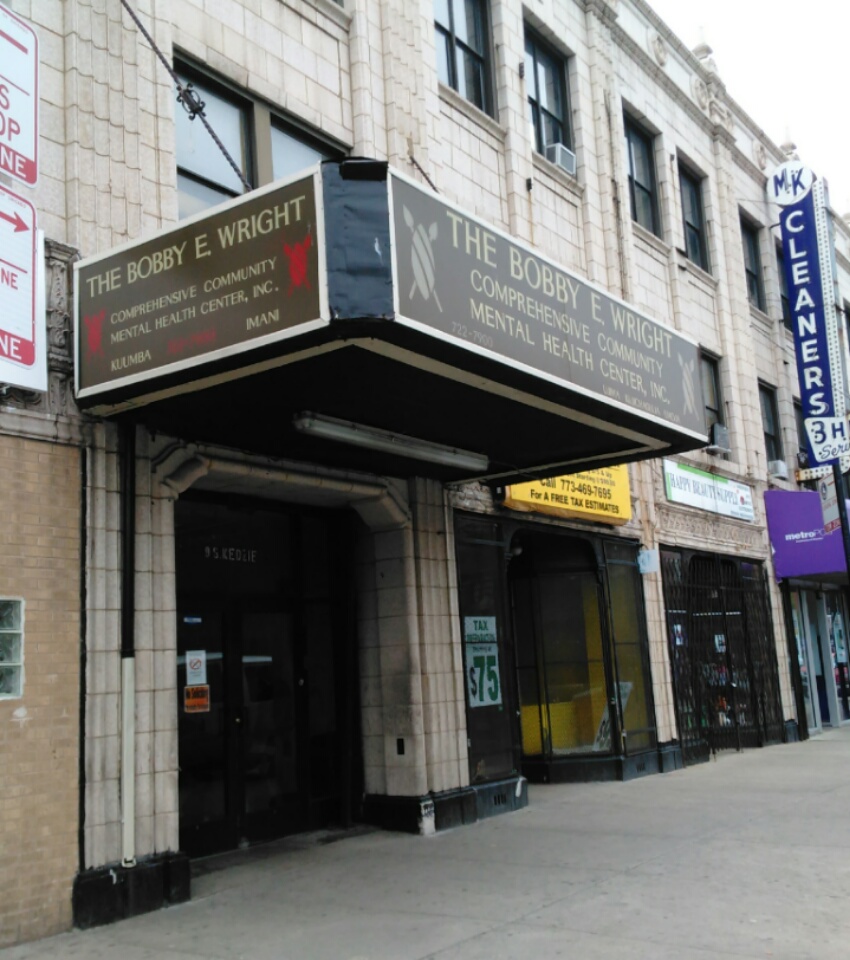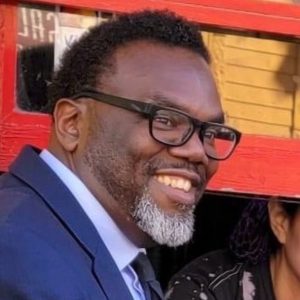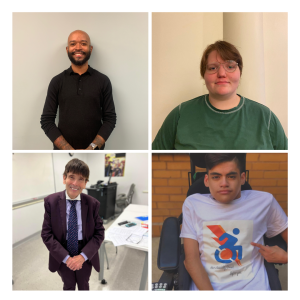
“Hey girl!”
Patricia Blackmon gets two steps down the hall before turning around to see who yelled that out to her.
It’s a longtime friend of hers, and the two ladies hug. Moments later, another lady waves at her from down the hall and Blackmon waves back–another good friend. Blackmon’s been coming to Bobby E. Wright Comprehensive Behavioral Health Center on the West Side since 2010. She says the counselors and clients there are like family.
The North Lawndale resident has been off drugs for 10 years and currently gets counseling at the center for her depression. The center has been around since 1973 and is Chicago’s only African American-operated community health center. It’s also one of two centers on the West Side that’s still open, having survived decades of state and federal budget cuts to mental health services across the country.
Two years ago, Mayor Rahm Emanuel closed six citywide mental health clinics to save a reported $2 million in the city’s budget. Advocates, service providers and clients, however, argue that poor communities of color have suffered the most.
“Bobby Wright helped me save my life,” said Blackmon, 53, the mother of two adult daughters. “I needed someone to talk to about my disease and struggles in life. I turned to Bobby Wright. I needed someone to counsel me on my illness, to speak on it and about it.”
The center sees about 1,500 clients a year, has an 85-person staff and an annual operating budget of $5 million.
Located at 9 S. Kedzie Ave. in the East Garfield Park community, the center is named after Chicago-based clinical psychologist Bobby E. Wright, who died in 1982. Wright is recognized for pioneering mental health treatment for African Americans, believing that a cultural understanding of black patients was critical in dealing with their illnesses.
Blackmon said her problems began with stress. That, she said, led to depression, an illness that strikes one out of 20 Americans aged 12 and older, including 6 percent of black Americans in that age group, according to the Centers for Disease Control and Prevention.
“I was going through a little stress and depression in my life, going through bad relationships,” Blackmon said. “I had a slight drug problem, and I turned to Bobby Wright.”
A friend in the neighborhood told her about the center and she decided to stop in. Bobby Wright and the Lawndale Mental Health Clinic are the only two community mental heath facilities servicing the West Side’s 172,000 residents in Austin, East and West Garfield Park, and Lawndale, according to U.S. Census data.
The Bobby E. Wright Center also provides treatment for substance abuse, domestic violence, and offers housing for homeless people, among other services.

Demetrius Cumberland was bouncing between shelters and the streets before coming to Bobby Wright in 2012. The 53-year-old West Sider suffers from schizophrenia effective disorder, with symptoms including hallucinations and depression. Initially diagnosed in 1982, Cumberland said he can trace his mental health problems back to childhood.
He recalls having anxiety as early as the seventh-grade but said his teachers didn’t know how to deal with his changing moods. Shuffling from one foster home to another, Cumberland said some teachers in school didn’t make time for him to even help with school work. One particular experience in the seventh grade still haunts him.
A teacher caught him and his friend talking in class and told them to stop. His friend later asked him a question and when Cumberland said they should talk after school, the teacher caught them again.
“She put tape on my mouth. She had me in front of the class and everybody was laughing. When I was walking back to my desk she told me to come here and them she ripped the tape off my mouth,” Cumberland said, making a motion with his hands to his mouth. “I thought, ‘Why would you do that to me?’ That bothered me for a long time.”
Cumberland said he sought treatment as an adult for his illness but most clinics he went to just gave him some pills and sent him on his way.
Bobby Wright didn’t treat him that way, he said.
The center provided counseling, which he still receives, and helped him get on the right medication. He also got a job at Bobby Wright’s Peaceful Beginnings drop-in center at 2339 W. Lake St., which provides life-skill and recreational programs to clients. Cumberland also got off the street and into Wright’s residential apartments, also located in Garfield Park.
“It was like a blessing, because I didn’t know where I was going to go,” said Cumberland, who happened to just walk inside the center back in 2012 out of curiosity.
Helping residents like Cumberland and Blackmon has become a challenge in the last 10 years because of funding cuts, said Dr. Rashad Saafir, the center’s president and CEO.
“We’ve seen about 10 [community] agencies close because they’ve not been able to sustain themselves in this new environment,” said Saafir, insisting that federal funding should be restored to community health services. “I think as a nation we need to be more concerned about promoting mental health, and we also need to be concerned with preventing mental illness and substance abuse.”
Additional funding from the state and federally could allow the Bobby E. Wright Center to expand services and help more people, Saafir said.

The Bobby E. Wright Center is the product of the 1963 federal Community Mental Health Act. Signed by President John F. Kennedy, the law provided direct federal funding to community-based treatment and preventative care facilities. But by the 1980s under President Ronald Reagan, direct federal funding was replaced with block grants signed over to the states.
But state governments nationwide, including Illinois, have slashed their own budgets for mental health services.
Since 2009, more than $1.6 billion have been cut from state budgets, including in California, Nevada and Illinois, according to a study by National Alliance on Mental Illness (NAMI), based on financial data gathered from the states.
Between 2009 and 2012, Illinois cut $113 million from mental health services, according to a report published last year by NAMI’s Chicago chapter.
“We’ve never had a well-funded mental health system,” said Alexa James, NAMI Chicago’s executive director. “Even when we de-institutionalized and basically increased the homeless population significantly, we had this idea that we’re going to invest in the community mental health system and it was never adequately done.”
James added that community-based systems are less expensive, and more humane, than sending the mentally ill to prison, emergency rooms or homeless shelters.
Cook County’s Department of Corrections on Chicago’s West Side has become the nation’s largest mental health provider, with at least 60 percent of those incarcerated suffering from some form of mental illness, James noted, citing her agency’s May 2015 report, “Making the Case for Funding and Supporting Comprehensive, Evidenced-Based Mental Health Services in Illinois.”
For Bobby Wright clients like Blackmon, the center was a better alternative to ERs. A volunteer at her church and her apartment building helping out with elders, Blackmon said she likes coming to Bobby Wright.
“I’m a people person,” she said. “I love to help people because I came a long way. The Bible says, ‘Whatever you learn, you put back out there for someone else.'”

















Be First to Comment